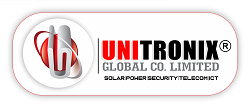EFFECTIVE CONTRACTORS MANAGEMENT IN MAINTENANCE AND TECHNICAL PROJECTS TRAINING

Get Trained! Be Certified! Be Employable
EFFECTIVE CONTRACTORS MANAGEMENT IN MAINTENANCE AND TECHNICAL PROJECTS TRAINING
WHAT YOU LEARN
Introduction to Contractors Management: Importance of effective contractors management in maintenance and technical projects. Roles and responsibilities of contractors, project managers, and stakeholders.
Contractors Selection and Qualification: Criteria for selecting contractors based on expertise, experience, and capabilities. Pre-qualification processes, including assessment of financial stability and past performance. Contract Types and Agreements: Different types of contracts (fixed-price, time and materials, cost-plus) and their implications. Developing clear and comprehensive contract agreements. Legal and Regulatory Compliance: Ensuring contractors adhere to relevant laws, regulations, and industry standards. Understanding liability and risk-sharing in contract agreements. Scope Definition and Work Specifications: Clearly defining the scope of work and technical specifications. Ensuring mutual understanding and agreement on project expectations. Contractors Safety and Health Management: Establishing safety protocols and guidelines for contractors. Monitoring and enforcing safety practices to prevent accidents and incidents. Project Planning and Coordination: Developing project schedules, milestones, and deliverables. Coordinating contractors' activities with internal teams and other stakeholders. Communication and Reporting: Establishing effective communication channels between contractors and project managers. Regular progress reporting, status updates, and issue resolution. Resource Allocation and Logistics: Providing necessary resources, materials, and equipment to contractors. Ensuring timely availability of resources to prevent delays. Quality Assurance and Inspection: Establishing quality control measures and inspection criteria. Conducting regular inspections to ensure work meets specified standards. Change Management and Variations: Handling changes in project scope, timelines, and requirements. Documenting and managing variations and change orders. Risk Management and Contingency Planning: Identifying potential risks and developing mitigation strategies. Creating contingency plans to address unexpected challenges. Performance Evaluation and KPIs: Establishing key performance indicators (KPIs) to measure contractor performance. Regular performance evaluations and feedback sessions. Contractors Documentation and Records: Maintaining accurate records of contractor activities, contracts, and correspondence. Documentation for auditing, compliance, and future reference. Conflict Resolution and Dispute Management: Strategies for resolving conflicts and disputes that may arise during the project. Mediation and escalation processes to address issues with contractors. Lessons Learned and Continuous Improvement: Reviewing project outcomes and identifying areas for improvement. Incorporating lessons learned into future projects and contractors management. Case Studies and Practical Exercises: Analyzing real-world scenarios and practicing effective contractors management. Role-playing exercises for communication, negotiation, and conflict resolution.OUR AIM
UNITRONIX TRAINING ACADEMY (UTA) is the training arm of UNITRONIX GLOBAL CO. LIMITED; one of the fastest growing reputable RENEWABLE ENERGY companies in Nigeria. In partnership with the world’s top- rated solar modules manufacturer OEM across the world, we deliver intensive theoretical, practical and on-site installation training in solar energy. Our trainings are delivered in a conducive environment, with experienced professionals and hands-on practical sessions. Our training sessions are very interactive to ensure full understanding of all topics covered. At the end of the training, every trainee will be certified and accredited as a Unitronix Dealer for the purposes of partnership.
BENEFITS OF THIS TRAINING
- Become a certified installer/professional
- Gain employment with premier solar companies
- Engage in business partnerships and mentoring with UTA, the industry’s foremost training institution.
- Stay informed about emerging solar technologies and applications firsthand
- Achieve internationally recognized certification
- Join the UTA alumni network, unlocking exclusive benefits
- Tap into the expertise of our team of skilled engineers
- Attain membership in leading renewable energy associations

